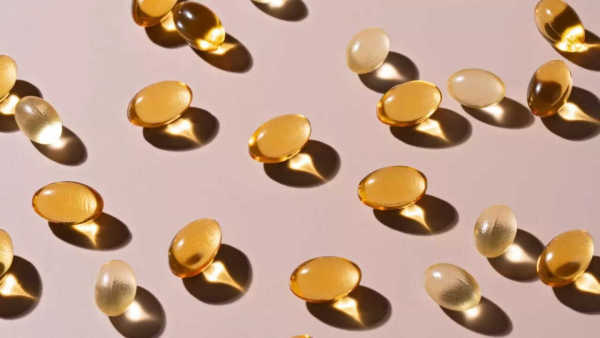
Imagine finding the solution to one of the most feared diseases in a simple, everyday compound! A new study is showing light along that line.
The aforementioned scientific study has sent ripples through the health world: consuming more of a certain vitamin might reduce the risk of developing dementia by nearly 49%.
With dementia cases rising globally, identifying nutrients that might help delay or reduce risk is an urgent task. So, this could be a simple, everyday way to protect our minds as we age.
What does the study say
The recent Japanese cohort study, published in the , reveals a compelling association between higher dietary intake of riboflavin (vitamin B2) and a substantially reduced risk of disabling dementia. According to the study, participants in the highest quartile of riboflavin intake had nearly 49 % lower risk of developing dementia severe enough to require daily care, compared to those in the lowest quartile.
The research formed part of the Circulatory Risk in Communities Study (CIRCS), involving 4,171 Japanese adults aged 40 to 69 at baseline. Their dietary intake was measured via a standardized 24-hour recall, and over a median follow-up of 15.4 years, cases of disabling dementia were identified using Japan’s national long-term care insurance system. In total, 887 participants developed dementia serious enough to require assistance.
When researchers adjusted for potential confounders such as age, sex, body mass index, smoking, alcohol use, medical histories, and total energy intake, the inverse relationship between riboflavin intake and dementia remained strong. Those in the top intake group had a multivariable hazard ratio of 0.51 (95 % CI: 0.42–0.63), meaning about half the risk relative to the lowest group. The trend was statistically significant.

The study also explored other B vitamins. Vitamin B6 and folate (B9) showed more modest protective associations: higher intake was linked to about a 20 % lower risk of disabling dementia. However, vitamin B12 did not show a clear or significant protective link in this dataset.
Interestingly, the protective effects of riboflavin and B6 appeared stronger among participants without a history of stroke. This suggests that these vitamins might play a particularly important role in dementia that is not primarily driven by vascular damage (i.e., non-vascular forms).
How Riboflavin (vitamin B2) works and supporting evidence
Riboflavin is involved in energy metabolism, oxidative stress reduction, and recycling other antioxidants. Its role in maintaining healthy cellular processes may theoretically benefit brain health.
Other has linked vitamin D deficiency to greater dementia risk . A meta-analysis of observational studies found that low vitamin D levels are associated with an approximately 49% increased risk of dementia. around B vitamins (B6, folate, B12) have also been explored, especially since they influence homocysteine levels (high homocysteine is considered a dementia risk factor).

In addition, showed vitamin D deficiency is linked to a higher risk of all-cause dementia and Alzheimer’s disease. These studies collectively suggest that multiple vitamins might converge in supporting brain function.
Limitations of the study
Despite providing the healthcare community with hope, the study has its fair share of limitations. The dietary data came from a single 24-hour recall, which might not reflect long-term consumption patterns. The researchers did not account for supplement use, so they couldn’t tell whether vitamin tablets or fortified foods had an influence. Also, the study could not distinguish among dementia subtypes (like Alzheimer’s vs vascular dementia). Importantly, because it is observational, the work cannot prove that high riboflavin caused the lower dementia risk — only that the two are associated.
The biological rationale for riboflavin’s potential protective role hinges on its functions in energy metabolism, antioxidant systems, and support for cellular repair processes. It is plausible that by reducing oxidative stress and supporting healthy neural function, riboflavin could contribute to resilience against neurodegeneration.
Still, experts caution against overinterpreting the findings. This is a promising piece of evidence in a broader puzzle. Other studies on B vitamins and cognitive decline have had mixed results, and factors such as lifestyle, genetics, vascular health, and overall diet remain key in shaping dementia risk.

What’s next
So what should we do now?
Emphasizing a balanced diet remains the most crucial factor — one that includes natural sources of riboflavin and other B vitamins.
Food sources of Riboflavin
Dairy products: milk, yogurt, cheese
Eggs
Lean meats (especially liver)
Fish (e.g., salmon)
Green leafy vegetables (spinach, asparagus)
Legumes (beans, lentils)
Fortified cereals and whole grains
However, because riboflavin is water-soluble, excess amounts are generally excreted, but that doesn’t mean “more is always better.”
Disclaimer: This article is intended for informational purposes only and does not constitute medical advice. The findings cited are from an observational study and do not prove causation, only association. Always consult a qualified healthcare professional before making changes to your diet or taking vitamin supplements, especially if you have existing health conditions or are taking medications.
-
'Such Acts... Deeply Hurt The Religious Sentiments': Makers Of Kantara Chapter 1 Urge People Not To Mimic Dhaivaradhane

-
Brits trust AI and Google over gut instincts for big life decisions, study finds

-
The Diplomat season 3 release date, cast and trailer as new stars join series

-
Popular British brand opening first-ever UK store in iconic location

-
David Raya joins Arsenal teammate in secret contract agreement as Gunners reward great form
